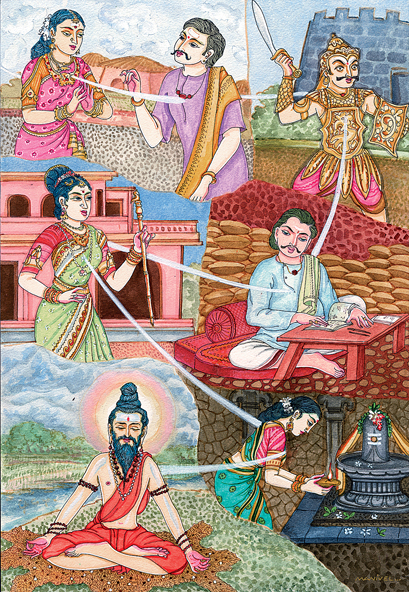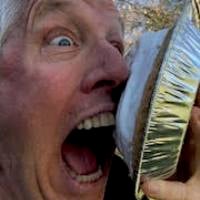
When I was nine, I met my first ever believer in reincarnation. I grew up in a mostly white, middle class suburb of Chicago with a red brick Methodist Church just a few blocks away and other Baptist and Catholic churches around.
One day, after a freak, heavy rainstorm, the Methodist minister went into his basement to investigate flooding and was instantly electrocuted.
I assume that he believed in heaven, but of course that doesn’t mean that he would go there. Perhaps he was reincarnated: I bet he would be surprised to come back as a goat, a hawk, a shaman or an atheist.
It’s impossible to tell with total certainty where any of us is headed after we cash out. So, it would seem that it might be fun to speculate a bit.
Reincarnation
I’m not a gambler, but I like the idea of reincarnation. The idea that I could, and just might come back as just about anything tickles me. But I’m hoping that it is a complex algorithm that determines what we come back as. I don’t want me, or anyone I know to be involved in the computation. I’m not a fan of any explanation—Christian, Buddhist, Hindu or otherwise—that offers certainty about who is coming back as what.
But I sure enjoy the speculation. It has me look at the pot bellied pig, my ex-girlfriend who dumped me and warthogs differently, and be wide open to people with political or religious views different than my own.
I figure that at some point someone will devise a reincarnation app which, after a few questions, spits out a prediction of what/who we will be next time around. And hopefully I will be long gone before the next generation of the app arrives which will tip the scales toward a specific incarnation.
While reincarnation leads to me being oddly confident and curious, I wouldn’t want to limit myself to one and only one possible explanation for the greatest mystery: life and death.
Good and bad
I like the idea of going to heaven—but we don’t really know what heaven, if it exists, is like.
Mark Twain said: “Go to heaven for the climate and to hell for the company.”
I like imagining Mark in heaven raising hell.
It might be nice sometimes to imagine ourselves in heaven, especially when our load is heavy here. But really, the whole idea of good/bad seems more like a mundane control game than a way of divining eternity.
In our time here, we get pretty used to the roller coaster ride, the highs and lows, so I hope that whatever venue the afterlife offers maintains that sort of variability.
Seems we can make up heaven and hell anyway we want; we don’t have to accept the fire and brimstone model. So I’m saying that everybody gets to go to heaven because I simply can’t find any payoff, other than threatening people, that hell serves.
My first grade teacher believed that we are all bad and we have to prove ourselves. This didn’t go over well with her innocent students and she didn’t look the least bit happy herself.
But assuming we are all perfect isn’t the answer either, it stymies learning and undermines the fun of being a hero one day and a total goof the next.
While heaven and hell are worth considering, the economics of it just don’t work out over time because they are based on a dichotomy of “good” and “bad,” which has more to do with judging people on Earth than where we spend eternity. It hog ties our ability to love too and shouldn’t have much to do with spirituality, death, dying or living.
Into the ground
Atheists and the like tend to believe that when we die it’s simply into the ground we go (or up in flames). And while that may be true, I’m not sure it offers us the leverage we want or the perspectives we need. It also lacks creativity.
Just because we don’t have absolute evidence for something doesn’t mean that it doesn’t exist. Where our evidence ends, belief and faith begins. I’ve never been to Japan or eaten a chocolate covered ant, but I’m pretty sure that both exist.
Keeping options open
Every approach to explaining what happens when we die appears to have its plusses and minuses. So, I suggest that we adopt them all.
When we watch a video of an otter running and sliding on her belly on the snow, let’s imagine we come back able to do that, and then slip into a crack in the ice. Or let’s be the eagle soaring over the Grand Canyon, or forgive our brother for coming back greedy or the rattle snake for biting.
But let’s help out in the soup kitchen often, just in case “good” acts get us somewhere. And let’s dip into both compassion and action, improving the lives of anyone we can.
Let’s hedge our bets for later, and notice that, when we do something for someone else it lights up our day right now, making us feel good from head to heels. Let eternity take care of itself.
When we simply don’t want to get up in the morning, that might be a good time to think that life ends at death, that we should go for all the gusto this time round, hop out of bed and do a few push-ups before we jump into a cold shower.
Maybe we should listen to Buffy Saint Marie, an American Indian, from her song Universal Soldier when she sings:
“He’s a Cath’lic, a Hindu, an atheist, a Jain, a Buddhist and a Baptist and a Jew. And he knows he shouldn’t kill and he knows he always will.” ~ Buffy Sainte-Marie
Let’s pick our endings and our battles carefully, sometimes for joy, other times for goodness and yet other times to get ourselves up and out in the morning. Let’s be creative both in life and in how we interpret our endings and eternity.
Lets abandon dogma for enhancing our flexible nature…and hedging our bets.
~
~
~
Author: Jerry Stocking
Photo: Wikicommons
Editor: Travis May






Read 0 comments and reply